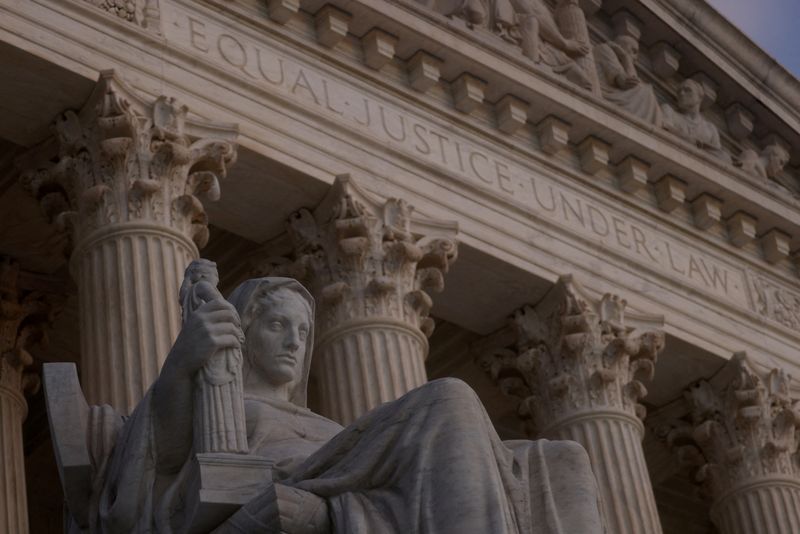By Jan Wolfe
WASHINGTON (Reuters) -The U.S. Supreme Court on Monday declined to hear a challenge by Republican lawmakers to pandemic-related proxy voting rules set by Speaker Nancy Pelosi in the Democratic-led House of Representatives that were tailored to limit exposure to COVID-19.
The voting rules, implemented in May 2020, allow members of the 435-seat House to serve as proxies for colleagues in quarantine or otherwise unable to cast floor votes in the chamber. House Republican leader Kevin McCarthy and other lawmakers had asked the Supreme Court to reverse a lower court decision that allowed the remote voting rules to remain in effect.
The resolution passed by the House enabled lawmakers to act as a proxy for up to 10 colleagues at any one time, requiring that they disclose which members they intended to represent. The proxy voting system was embraced early in the pandemic and was intended to be temporary, but has been extended several times. The most recent extension is in effect until Feb. 13.
Republican lawmakers have called the measure a violation of the U.S. Constitution, arguing that only lawmakers actually present within the halls of Congress can cast votes. Republicans also called the resolution a way for Democrats to maintain their slim majority in the House regardless of whether all their members are present on Capitol Hill.
Despite Republican opposition to the measure, both parties have taken advantage of the proxy voting system to work remotely - much like millions of other U.S. office-workers.
Last May, seven House Democrats cast votes by proxy when they joined President Joe Biden on a visit to a Ford Motor (NYSE:F) Co plant in Michigan. The following month, nine House Republicans voted by proxy while visiting the U.S.-Mexican border with former President Donald Trump.
A federal appeals court dealt a setback to McCarthy's legal challenge last July. Affirming a lower court ruling, the U.S. Court of Appeals for the District of Columbia Circuit said it was foreclosed from reviewing the proxy voting rules.
The D.C. Circuit's three-judge panel cited the Constitution's "speech or debate" clause that offers broad protection to members of Congress against lawsuits for actions they undertake as legislators.
The House has embraced other rules aimed at protecting the safety of lawmakers during the pandemic including a requirement for wearing face masks and a prohibition on congregating in an area called the Speakers Lobby outside the House chamber. In addition, many House and Senate hearings are held virtually. Tourists are not allowed in the Capitol.
The legal challenge brought by McCarthy and his colleagues is an example of the sharp partisan tensions in the House and the Republican animus toward Pelosi. Republicans are seeking to regain a majority in the chamber in November's congressional elections.
